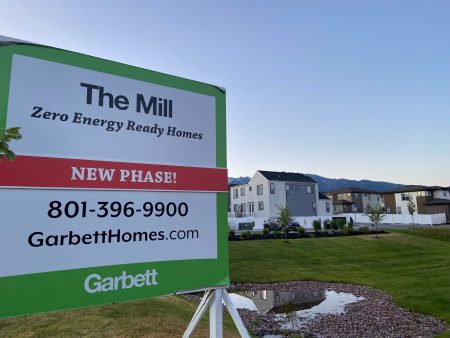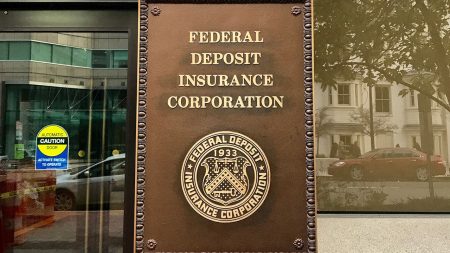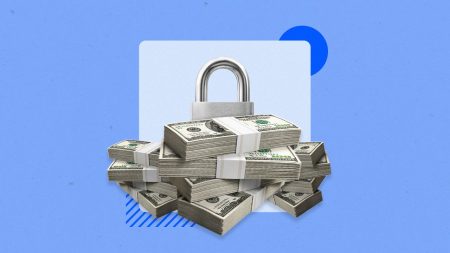Jacobs Stock Photography Ltd/Getty Images
Key takeaways
- Homebuyers who are interested in properties not listed for sale may need to find out who the current owner is.
- In some cases, the info can be tracked down for free online or with a visit to a county clerk’s office or library.
- There are also other, more in-depth options, but they are likely to be much more expensive.
Hoping to buy a dream home that, unfortunately, is not actually for sale? If you’d like to see if the owner would be willing to make a deal, you might need to do some sleuthing to figure out exactly who owns it. There are several ways to go about determining this — read on to learn how to find out who owns a house, an individual lot or a piece of land.
How to find out who owns a house using public resources
Unless the owner of the property has taken steps to conceal their identity, finding out who owns a home can be pretty easy. In fact, it can often be done simply by Googling the address. But if that doesn’t do the trick, these three options can help track down more details:
The county clerk’s office
Real property ownership is a matter of public record. That means info on sales, transactions and defaults — including the names of the parties involved — should be available via your county or municipality: Look for an office of land registry, property records or land records. You can usually get the data you need in person, on the phone, via email or, in some areas, online.
- Biggest pro: It’s free.
- Biggest con: The office you need may have limited operating hours, and local-government websites are often outdated and clunky.
The tax assessor
The owner of a property is, presumably, paying property taxes on it. That means your county tax assessor will have a record of their identity, as well as how much tax they pay. Google the name of the county where the property is plus “tax assessor” to get started. In some areas, you will need to pay a visit to City Hall to access the records. Other regions may provide searchable online databases.
- Biggest pro: It’s usually free, and you might also find additional useful details about the home.
- Biggest con: You may be charged a (nominal) fee for a physical copy of the records.
The public library
Your local library may also grant free access to public databases on their computers. Plus, the staff will be able to direct you to reference materials related to property sales and ownership. If the home or building in question was sold a long time ago, your local librarian may be able to dig up physical records that are harder to come by.
- Biggest pro: It’s free — plus human assistance will be available.
- Biggest con: The maze of old public records may be difficult to navigate.
How to find out who owns a house using private resources
If the public means fail you, you may want to hire a professional. These pros can all be good resources:
A title search company
Conducting a title search is standard operating procedure for a real estate transaction, but you don’t have to be in contract on a property to hire a title company. A title search will reveal the current owner, as well as verifying whether there are any ownership issues or liens against the property.
- Biggest pro: Easy to find, does all the work for you.
- Biggest con: Can cost up to a couple hundred dollars, which may not be worth it if you’re not actually buying the property.
A real estate attorney
If the property is owned by an LLC or is the subject of a probate dispute, finding the owner might be tricky — a local real estate attorney may be able to help you figure things out. This is a more expensive option than doing your own records search, to be sure. But if you’re really in a pickle it may be worth a shot.
- Biggest pro: Lawyers can work through issues you probably wouldn’t be able to on your own.
- Biggest con: They’re also expensive — attorneys are likely to charge by the hour, so multiple hours of research can add up.
A real estate agent
Real estate agents who do a lot of deals in your area are kind of like the human equivalent of an old phone book: They have a lot of information. A really seasoned local pro might already know the answer you’re looking for, and if not, they may be able to ask their connections for help.
- Biggest pro: Agents may know other valuable insider info about the property, too.
- Biggest con: They are likely to charge for the service, and may not want (or be allowed) to help if you don’t agree to hire them when you’re ready to make an offer.
Record-finding services
If you find yourself regularly searching for property owners — you’re starting a house-flipping business, say — you may want to sign up with an online record-search service. These firms, with names like PropertyRadar, PropertyShark and PropertyScout, often charge a monthly subscription fee. But in return, you gain access to fairly detailed data.
- Biggest pro: Ability to access detailed information for multiple properties.
- Biggest con: Subscription fees.
Bottom line
If you’re interested in a home that doesn’t have a “for sale” sign in the front yard, you may want to find out who owns it — so you can see if they’re willing to entertain the idea of selling it. In today’s information economy, it’s typically pretty easy to find the owner’s name, often for free, via online and public resources. But if that doesn’t turn up the info you’re looking for, be ready to move on to more expensive options. Once you know the current owner, you can decide whether you want the next owner to be you.
Why we ask for feedback
Your feedback helps us improve our content and services. It takes less than a minute to
complete.
Your responses are anonymous and will only be used for improving our website.
Help us improve our content
Read the full article here












